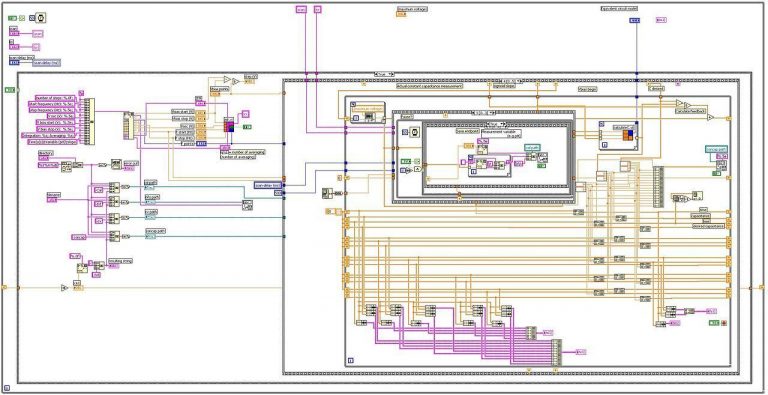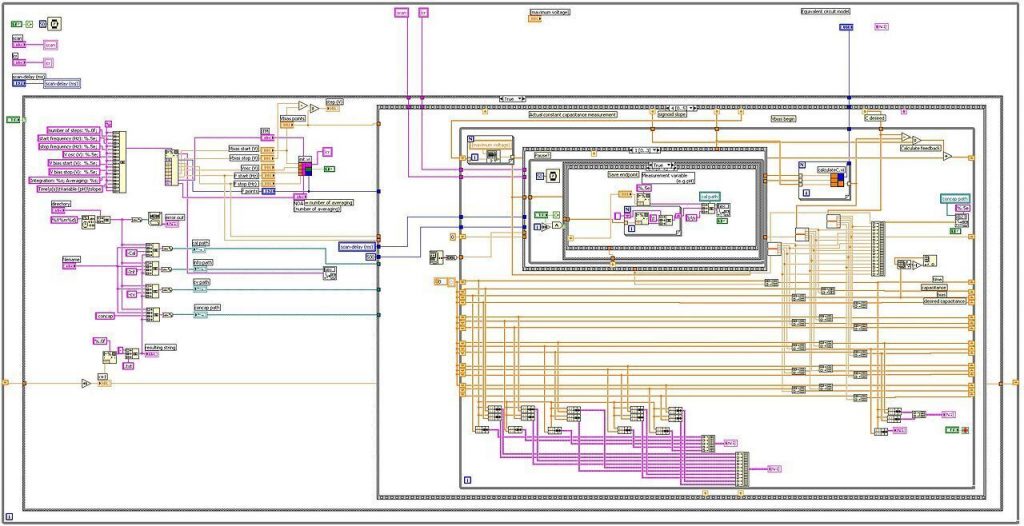Setup and Optimize the National Instruments PXI-5441 Waveform Generator
The National Instruments PXI-5441 is a powerful PXI waveform generator designed to support high-speed waveform downloads up...


It’s impossible to ignore the capabilities of Artificial Intelligence, and with emerging programs becoming such an integral part of many different industries, every organization is looking for ways to stay ahead. One of the biggest new breakthroughs this year is LabVIEW Generative AI, a revolutionary product from NI (National Instruments) that has the potential to completely change how businesses approach efficiency and automation.
This new capability, which will be included in the next LabVIEW Deep Learning Module, offers strong tools and functionalities that take advantage of the local execution of large language models (LLMs) that are available as open-source and tailored for use in industrial settings.
Let’s explore the greatest aspects of LabVIEW Generative AI and how this technology is poised to transform industrial applications moving forward!
LabVIEW Generative AI represents a consequential advancement in the field of industrial automation. Central to this development is the LabVIEW Deep Learning Module, designed to facilitate the local execution of open-source large language models (LLMs). This feature helps engineers and developers to tackle advanced AI capabilities directly within their industrial applications. By utilizing Generative AI, LabVIEW can strengthen productivity and streamline processes, positioning itself as a pivotal tool in modern industrial settings. This module demonstrates the trend of submerging AI into engineering workflows, offering powerful tools for model training, deployment, and customization.
LM Studio (Labman Automation), a new addition to LabVIEW, leverages the HAIBAL 2.0 architecture to streamline the integration of Generative AI into industrial applications. This addition simplifies the development process by providing a cohesive environment for managing AI models. Large language models that are available as open-source can be executed locally with ease using LM Studio, giving users more customization and control. This integration is a crucial tool for engineers and developers who want to integrate cutting-edge AI solutions into their workflows because it strives to increase efficiency and innovation.
The LabVIEW Deep Learning Module promises significant performance enhancements specialized for industrial applications. This module includes advanced analytics tools that enhance data interpretation and pattern recognition, facilitating precise decision-making. Effective test data management ensures efficient handling and accessibility of large datasets, reducing time required for model training and execution. Seamless Python/LabVIEW integration broadens functionality, leveraging Python’s libraries alongside LabVIEW’s graphical programming for versatile test automation.
Additionally, the AI assistant NIGEL automates routine tasks and offers intelligent recommendations, improving productivity. NI SystemLink provides centralized data and asset management, enhancing coordination across teams and locations. The integration of AI and machine learning algorithms enables predictive maintenance and real-time anomaly detection, optimizing test parameters and ensuring system reliability. This comprehensive set of tools includes features for model annotation, training, fine-tuning, and deployment assistance, ensuring smooth integration with existing systems and tailored AI solutions for specific application needs.
Other key features of LabVIEW Generative AI include: Advanced analytics tools, effective test data management, and seamless Python/LabVIEW integration.
These developments promote test development, maximize yield, and improve product quality. The AI assistant, NIGEL, and tools like NI SystemLink facilitate data analysis and insights, boosting overall efficiency and productivity.
Anticipated Release and Future Implications
The LabVIEW Deep Learning Module, featuring the innovative LM Studio, is slated for release in July 2024. This product is designed to restructure engineering workflow productivity and efficiency with its potent features and improved performance. In the future, these developments may open the door to even more breakthroughs and strengthen LabVIEW’s leadership in AI-driven industrial solutions. Additionally, artificial intelligence has the potential to improve the capabilities and streamline the procedures of engineers and developers.
At Apex Waves, we are dedicated to supporting your legacy test equipment needs! We can locate and provide you with the exact model you’ve been looking for, even if it has been discontinued or declared obsolete. Contact us today to learn more and get a quote!
With its innovative features and major performance gains, LabVIEW Generative AI has the potential to completely transform industrial applications. With the launch of LM Studio and the abundance of tools in the Deep Learning Module, engineers and developers can now improve their workflows and productivity like never before. The industry is anticipating this technology’s huge impact as July’s release date draws near.
Check out our blog to keep up with LabVIEW Generative AI and other industry trends!
A monthly email packed with valuable content—industry news, tutorials, obsolescence updates, and more. No sales pitches, just insights we think you'll find helpful!
The National Instruments PXI-5441 is a powerful PXI waveform generator designed to support high-speed waveform downloads up...
Companies in almost every industry are being transformed by artificial intelligence, and autonomous machines are...
The PXIe Platform from National Instruments offers an incredibly valuable toolset for test and measurement innovation. Its...
It is no secret that simulation and testing is an important part of designing circuits....